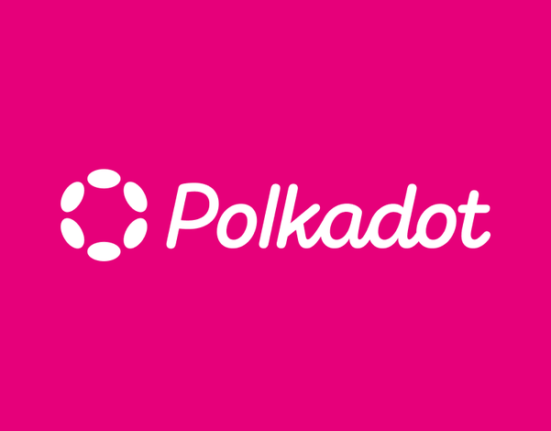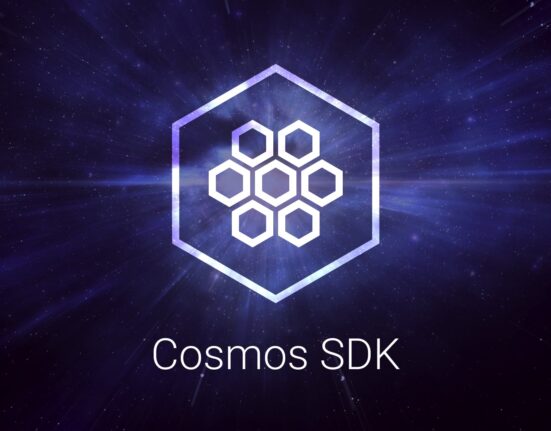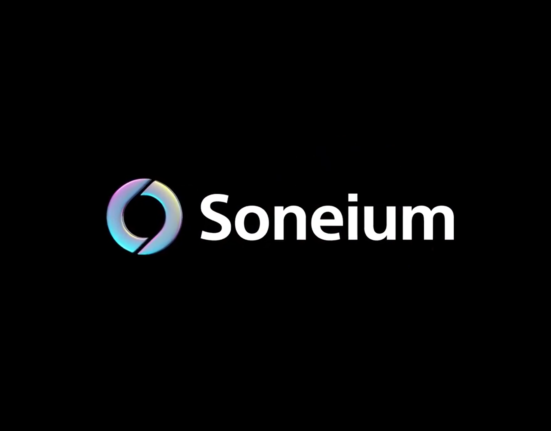In the ever-evolving landscape of web3 and decentralized technologies, a new paradigm has emerged: SocialFi. This term, a portmanteau of “Social” and “DeFi” (Decentralized Finance), represents a fusion of social media and decentralized finance principles, creating a novel ecosystem that promises to revolutionize the way we interact, collaborate, and transact online.
SocialFi is more than just a buzzword; it’s a movement that aims to reshape the internet as we know it, empowering users, fostering community-driven initiatives, and introducing new models of value creation and distribution. In this comprehensive guide, we will delve into the various benefits that SocialFi offers, exploring its potential to disrupt traditional centralized platforms and pave the way for a more equitable and transparent digital future.
Contents
- 1 True Ownership and Control
- 2 Incentivized Participation and Value Creation
- 3 Decentralized Governance and Community Ownership
- 4 Enhanced Privacy and Data Security
- 5 Interoperability and Composability
- 6 Censorship Resistance and Freedom of Expression
- 7 Monetization Opportunities and Creator Economies
- 8 Borderless and Inclusive Communities
- 9 Innovative Business Models and Value Creation
- 10 Resilience and Censorship Resistance
- 11 Conclusion
True Ownership and Control
One of the fundamental benefits of SocialFi is the concept of true ownership and control over digital assets and content. Traditional social media platforms operate on a centralized model, where users essentially surrender their data and content to the platform owners. This model has led to numerous controversies surrounding data privacy, censorship, and the exploitation of user-generated content for profit.
The table below compares the ownership models of traditional social media and SocialFi:
| Feature | Traditional Social Media | SocialFi |
|---|---|---|
| Content Ownership | Platform owns user content | Users own their content |
| Monetization | Limited, platform controls monetization | Users can directly monetize their content |
| Portability | Content locked to platform | Content can be transferred across platforms |
SocialFi, however, leverages blockchain technology and decentralized protocols to give users complete control over their digital footprint. Through the use of non-fungible tokens (NFTs) and decentralized storage solutions, users can truly own their content, be it text, images, videos, or any other digital asset. This ownership extends beyond mere possession; users have the ability to monetize, transfer, or even destroy their content as they see fit, without the intervention or control of a centralized authority.
Incentivized Participation and Value Creation
Traditional social media platforms have been criticized for extracting value from user-generated content without adequately compensating the creators. SocialFi aims to address this imbalance by introducing incentive mechanisms that reward users for their contributions and engagement.
The table below illustrates potential incentive mechanisms in SocialFi:
| Incentive Mechanism | Description |
|---|---|
| Content Creation Rewards | Users earn tokens for creating high-quality content |
| Engagement Rewards | Users earn tokens for engaging with content (liking, commenting, sharing) |
| Governance Rewards | Users earn tokens for participating in platform governance (voting, proposing changes) |
| Referral Rewards | Users earn tokens for referring new users to the platform |
Through the use of cryptocurrencies and tokenized economies, SocialFi platforms can incentivize users for creating high-quality content, engaging with others, and participating in community governance. This not only fosters a more vibrant and sustainable ecosystem but also aligns the interests of users and platform developers, creating a symbiotic relationship where both parties benefit from the platform’s success.
Decentralized Governance and Community Ownership
Centralized social media platforms have faced scrutiny for their opaque decision-making processes and lack of accountability to their user base. SocialFi platforms, on the other hand, embrace the principles of decentralized governance, allowing users to have a direct say in the platform’s development, moderation policies, and strategic direction.
Through the use of decentralized autonomous organizations (DAOs) and on-chain voting mechanisms, SocialFi empowers communities to collectively govern the platform, ensuring transparency, fairness, and alignment with the collective interests of its users. This paradigm shift challenges the traditional top-down approach, fostering a sense of ownership and collective responsibility among the community members.
Enhanced Privacy and Data Security
Data privacy and security have become major concerns in the digital age, with centralized platforms often falling victim to data breaches, unauthorized access, and misuse of personal information. SocialFi addresses these concerns by leveraging the inherent properties of blockchain technology and decentralized architectures.
The table below compares the data security models of traditional social media and SocialFi:
| Feature | Traditional Social Media | SocialFi |
|---|---|---|
| Data Storage | Centralized servers | Decentralized storage |
| Data Ownership | Platform owns user data | Users own their data |
| Encryption | Limited or no encryption | Advanced encryption and privacy protocols |
| Attack Surface | Single point of failure | Distributed, no single point of failure |
By decentralizing data storage and processing, SocialFi platforms reduce the risk of single points of failure and eliminate the need for centralized data repositories, which are often prime targets for hackers and malicious actors. Additionally, the use of advanced cryptographic techniques and privacy-preserving protocols ensures that user data remains secure and protected from unauthorized access.
Interoperability and Composability
One of the key advantages of SocialFi is its emphasis on interoperability and composability. Unlike traditional siloed social media platforms, SocialFi platforms are designed to integrate seamlessly with other decentralized applications (dApps) and protocols, fostering a diverse and interconnected ecosystem.
This interoperability enables users to leverage their digital assets and identities across multiple platforms, enabling a seamless and cohesive user experience. Furthermore, the composability of SocialFi allows for the creation of innovative applications by combining various decentralized components, opening up new avenues for creativity and collaboration.
Censorship Resistance and Freedom of Expression
Censorship and content moderation have been long-standing issues on centralized social media platforms, with concerns over biased policies, overreach, and suppression of free speech. SocialFi offers a solution by embracing the principles of decentralization and censorship resistance.
By leveraging decentralized storage and communication protocols, SocialFi platforms ensure that content cannot be easily censored or removed by a single authority. This not only safeguards freedom of expression but also promotes diversity of thought and open discourse, enabling users to engage in meaningful conversations without fear of unjustified censorship.
Monetization Opportunities and Creator Economies
SocialFi introduces new paradigms for monetization and value creation, empowering creators and content producers like never before. Through the use of tokenized economies, creators can monetize their content directly, without relying on intermediaries or centralized platforms that extract a significant portion of the revenue.
Also, SocialFi enables the development of creator economies, where fans and supporters can actively participate in the success of their favorite creators by investing in tokens or digital assets tied to their work. This not only provides new revenue streams for creators but also fosters a deeper connection between creators and their audience, fostering a symbiotic relationship built on mutual support and shared success.
Also Read: Centralized Identity vs Decentralized Identity
Borderless and Inclusive Communities
Traditional social media platforms have often been accused of perpetuating cultural biases, language barriers, and geographical divides. SocialFi, on the other hand, has the potential to transcend these limitations and foster truly borderless and inclusive communities.
By leveraging decentralized protocols and open-source technologies, SocialFi platforms can be accessible to users from all corners of the globe, regardless of their location or language. This not only promotes cross-cultural exchange and understanding but also opens up new opportunities for collaboration, knowledge sharing, and collective problem-solving on a global scale.
Innovative Business Models and Value Creation
The decentralized and tokenized nature of SocialFi opens up a plethora of innovative business models and value creation opportunities. From decentralized marketplaces for digital assets and services to tokenized attention economies and decentralized advertising networks, SocialFi presents a fertile ground for entrepreneurship and disruption.
By leveraging the power of decentralized finance (DeFi) and tokenized ecosystems, SocialFi platforms can introduce novel revenue streams, incentive mechanisms, and value capture models that challenge traditional centralized approaches. This not only fosters innovation but also creates new economic opportunities for users, developers, and entrepreneurs alike.
Resilience and Censorship Resistance
One of the fundamental advantages of decentralized systems is their inherent resilience and resistance to censorship. SocialFi platforms, built on decentralized architectures and distributed networks, are less susceptible to single points of failure, service disruptions, or regulatory clampdowns.
By design, SocialFi platforms are censorship-resistant, ensuring that content and communication channels remain accessible even in the face of attempts at censorship or control by centralized authorities. This resilience not only safeguards freedom of expression but also promotes the free flow of information and ideas, fostering an environment conducive to innovation and social progress.
Conclusion
The advent of SocialFi represents a paradigm shift in how we perceive and interact with digital communities and online platforms. By combining the principles of decentralization, blockchain technology, and tokenized economies, SocialFi offers a myriad of benefits that address the shortcomings of traditional centralized social media platforms.
From true ownership and control over digital assets to incentivized participation and value creation, decentralized governance, enhanced privacy and data security, interoperability and composability, censorship resistance, monetization opportunities, and innovative business models, SocialFi presents a compelling vision for the future of online interactions and digital economies.
However, it’s important to note that SocialFi is still an emerging paradigm, and its full potential has yet to be realized. Challenges such as scalability, usability, and mainstream adoption still need to be addressed. Nonetheless, the benefits of SocialFi are undeniable, and as the technology continues to evolve and mature, we can expect to witness a profound transformation in how we engage, collaborate, and transact in the digital realm.
Whether you’re a creator, entrepreneur, or simply an advocate for a more equitable and transparent internet, SocialFi presents an opportunity to be part of a revolutionary movement that redefines the boundaries of digital communities and empowers individuals to take control of their online experiences.

Raksha, a seasoned journalist, specializes in crafting insightful narratives on blockchain and AI developments. With a keen eye for innovation, she distills complex topics into accessible stories, providing readers with a clear understanding of the dynamic intersection between these transformative technologies.







